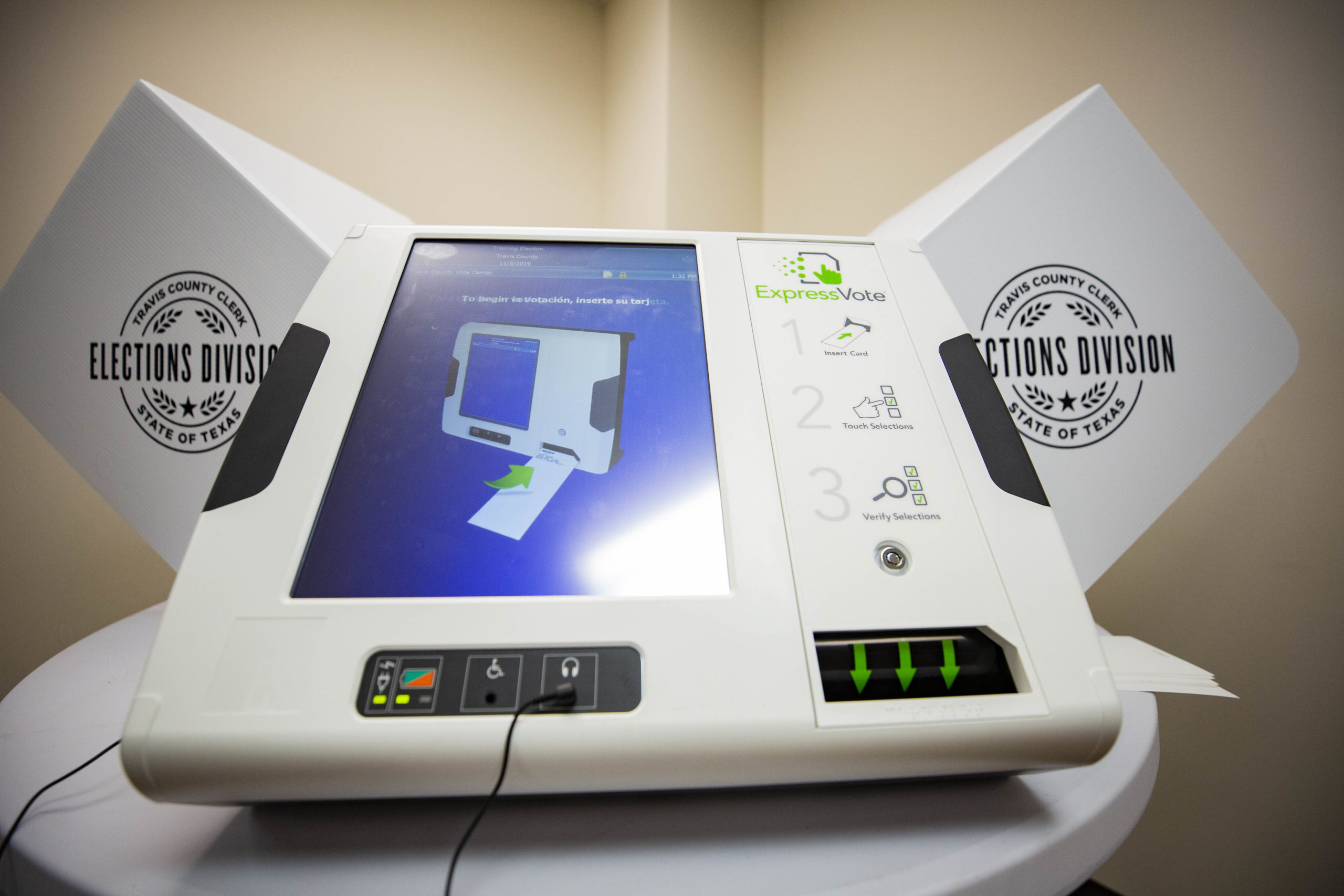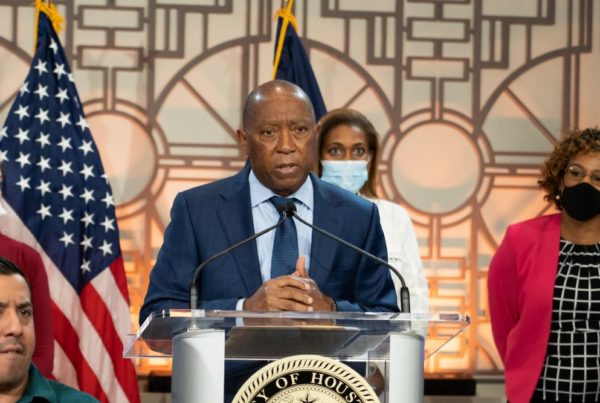The Texas secretary of state’s office intends to audit election results in four Texas counties. The announcement came hours after former president Donald Trump, who won Texas’ 38 electoral votes in the 2020 election, sent a letter to Gov. Abbott asking that Abbott add an item to the current special legislative session that would allow county political party chairs to request such audits.
It’s unclear why state officials decided to begin an audit now, since no credible evidence of election fraud has been alleged during the 2020 election in Texas. Counties whose 2020 voting tallies will be audited are: Harris, Dallas, Tarrant and Collin. Joe Biden won three of the four counties. Trump won Collin County, which is in North Texas.
Brandon Rottinghaus is a political science professor at the University of Houston.
Listen to the interview above or read the transcript below to learn more about why Rottinghaus says the governor may want the audits to take place, and how they work.
This transcript has been edited lightly for clarity:
Texas Standard: Is there any stated reason why these four counties were selected by the secretary of state’s office for a full forensic audit?
Brandon Rottinghaus: They didn’t specify why these four counties. We can speculate politically that it’s partly based upon what was happening in 2020 but also what’s been happening for a couple of decades. Harris and Dallas counties have been the deepest of blue for a good long while. These are heavily Democratic counties. Harris County in particular has been the kind of brunt of a lot of the discussion about how to make changes to Texas voting laws. So they were really a big target. Tarrant County and Collin County are counties that are really rapidly transitioning from red to purple. So there’s a good chance that they’re picking them for various political reasons. But they all have that thing in common, that they’re trending blue or are already very blue.
Gov. Abbott has denied allegations that there was pressure from the former president to do this audit. In fact, I believe that Gov. Abbott claimed that the audit actually began months ago, because the secretary of state has an obligation to make sure we do conduct audits in the state of Texas.
I think everybody understands the role Donald Trump plays in shaping Texas politics, perhaps even more than national politics. And this is as good evidence as we’ve seen that Texas politics are no longer independent. That stripe has really been kind of muted and, to some degree, both parties are slavish to these national trends. But the secretary of state’s [office] said that their election was smooth and secure and that you had county officials from all these counties saying that there’s not really a problem. So exactly why they chose to do an audit under these kind of vague laws that weren’t specified is really unknown.
Why would this count would be necessary, given that Trump was already declared the winner in Texas? Would this change the outcome in any significant way?
It’s really unlikely to. And I would say that it’s not unusual for counties and for cities and for states to do audits. It’s pretty commonplace. In fact, audits, if done properly, are a good thing. They allow for us to inform election officials about where there might be bugs or errors in a system, and you can use it as a deterrent against fraud. So good audits can actually be really effective. But if it’s done for the wrong reasons, it starts to erode trust in the process. So exactly how they go about this will be really telling because it’ll give us a model for what kind of new voting bill will do in terms of audits in the future.
Looking at how recounts have gone in other states, is there any evidence of fraud that you have heard about? I know there was a very big audit underway in Arizona.
It’s really unlikely to change the outcome and almost never does. If you’ve got the right system set up in place, it ought to tell you pretty much the same thing. This audit in Maricopa County in Arizona fundamentally reaffirmed the overall outcome, but it depends on what they do.
So a traditional kind of forensic audit is where they literally count the ballots and match [the] with the computer output. The problem is that for some counties like Tarrant County, that’s easy because they switched to a machine that lets them do that. But Harris County switched after the 2020 election, so there’s no paper ballot. It makes it harder to be able to make that count.
A procedural audit sometimes will be effective. That is where basically the machines are examined to see if they’re scoring vote choices properly and whether or not the chain of command and custody was followed properly. That’s where you might see some breakdowns. But elections are run by humans, assisted by robots. And so it’s a challenge to be able to do this effectively and to have no error. So you’ll find a few errors here and there, but it won’t change the outcome and it’s very unlikely to be tremendously meaningful.
What about the cost of all of this?
I think it’s going to be a fairly hefty bill, probably between $1 million and $4 million. If we can look at how it’s gone in Fulton County in Georgia, which is a big county, and Maricopa County, which we just talked about. They spent a lot of money on the Arizona audit, but it was private money. So we’re definitely going to be on the hook.















